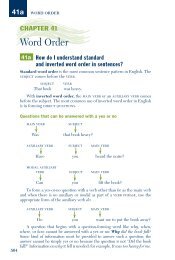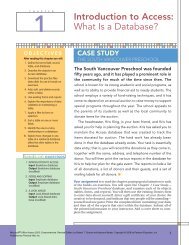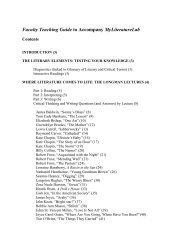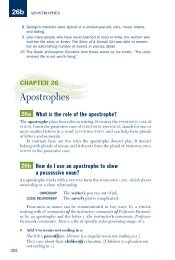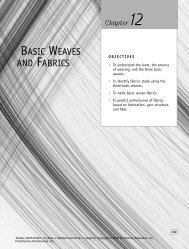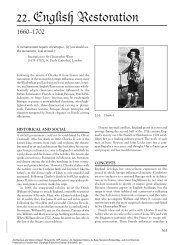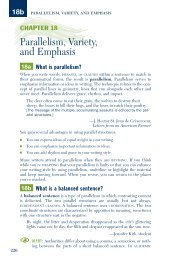A Guiltless Death: The unconsummated Marriage in “Othello” by K
A Guiltless Death: The unconsummated Marriage in “Othello” by K
A Guiltless Death: The unconsummated Marriage in “Othello” by K
You also want an ePaper? Increase the reach of your titles
YUMPU automatically turns print PDFs into web optimized ePapers that Google loves.
Goodfellow 2<br />
else of her mistress' actions and whereabouts. If she knows Desdemona to be chaste, then<br />
she <strong>in</strong>deed is. She defends Desdemona <strong>in</strong> private moments, and even proclaims to<br />
Othello his wife's <strong>in</strong>nocence as she herself dies, "Moor, she was chaste. She loved thee,<br />
cruel Moor" (5.2.258).<br />
In order to say Desdemona died a virg<strong>in</strong>, we must prove that she and Othello were<br />
unable to consummate their marriage. For the purposes of argument, we will assume that<br />
Desdemona enters the marriage a virg<strong>in</strong>.<br />
<strong>The</strong> first opportunity that Desdemona and Othello have to consummate their<br />
marriage is their wedd<strong>in</strong>g night. Cassio and certa<strong>in</strong> officers of the Venetian court ru<strong>in</strong> this<br />
chance when they come to Othello's lodg<strong>in</strong>gs to <strong>in</strong>form him that the Duke requires his<br />
presence <strong>in</strong> council immediately. While they may have had time to consummate their<br />
marriage before Cassio arrived, Othello's own words to the Duke and Senators are proof<br />
that noth<strong>in</strong>g has happened yet, "It is most true; true, I have married her./<strong>The</strong> very head<br />
and front of my offend<strong>in</strong>g/ Hath this extent, no more" (1.3.81-83). He <strong>in</strong>forms the court<br />
that he has done noth<strong>in</strong>g more than marry Desdemona up to this po<strong>in</strong>t.<br />
After learn<strong>in</strong>g he has to leave for Cyprus that even<strong>in</strong>g, he asks the court to let his<br />
new wife jo<strong>in</strong> him. To assure them that she will not distract him from his duties, Othello<br />
says, "Vouch with me, heaven, I therefor beg it not/To please the palate of my<br />
appetite,/Nor to comply with heat-the young affects/In me defunct-and proper<br />
satisfaction,/But to be free and bounteous to her m<strong>in</strong>d" (1.3.262-266). In say<strong>in</strong>g this, he<br />
means his marriage is not one of passion but of companionship. <strong>The</strong>refore,<br />
consummat<strong>in</strong>g their marriage is not of the utmost importance to Othello and unlike the<br />
"appetites" of younger men, sex will not be a major objective while he is <strong>in</strong> Cyprus.<br />
Copyright (c) 2005, Pearson Education Inc., publish<strong>in</strong>g as Pearson Longman. All Rights Reserved.




